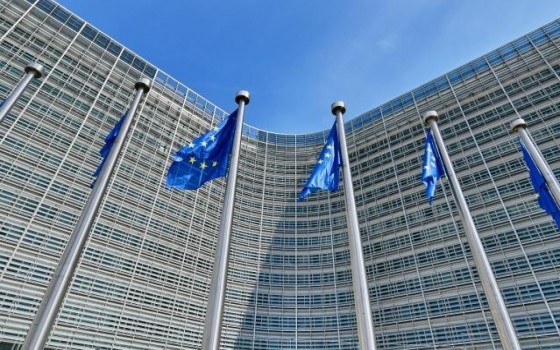
9 out of 10 people worldwide breathe air that is unhealthy

- Europe and Arabs
- Saturday , 7 September 2024 10:30 AM GMT
Geneva: Europe and the Arabs
The World Meteorological Organization of the United Nations said that uncontrolled climate change, forest fires and air pollution continue to have "an escalating negative impact on health, ecosystems and agriculture", with millions of deaths around the world attributed to polluted air. According to the UN daily news bulletin, a copy of which we received this morning,
Lorenzo Labrador, the organization's scientific officer, said: "Almost every person on Earth, nine out of ten people, breathes unhealthy air. This means air that exceeds the limits of the World Health Organization's guidelines and contains a high level of pollutants, and low- and middle-income countries are the most affected."
A driver of climate change
The stark finding is just one of many alarming findings in the World Meteorological Organization’s latest report on air quality and climate, which highlights, for example, that the first eight months of 2024 have seen no let-up in periods of extreme heat and persistent drought around the world, increasing the risk of wildfires and air pollution.
“Climate change means we are facing this scenario with increasing frequency. Science and interdisciplinary research are key to finding solutions,” the UN agency said.
The link between dirty air and poor health is clear, according to the World Health Organization, which urged global action to combat “one of the greatest environmental risks to health” and many preventable diseases including stroke, heart disease, lung cancer and acute respiratory infections.
“Ambient air pollution alone, mostly from vehicles and industry, causes more than 4.5 million premature deaths each year,” Mr Labrador told reporters in Geneva. “That’s more than deaths from malaria and AIDS combined. Air pollution is the biggest environmental risk of our time. But it’s not just a health risk in itself, it also exacerbates climate change.”
Regional trends
The UN report noted a trend toward “decreasing pollution in Europe and China” compared to North America and India, where there has been an increase in pollution emissions from human and industrial activities.
Mr Labrador said this was likely “a direct result of the decline in emissions in those countries over the years, a trend we have observed since we started publishing the report in 2021.”
While it is widely known that air pollution containing microscopic particles – including sulphates, nitrates, ammonia and soot from human activity and wildfires – is harmful to health, Mr Labrador reiterated the 2023 findings of the World Meteorological Organization that these and other pollutants also have a detrimental impact on food security.
Crop yields decline
“Particulate matter can severely impact the productivity of staple crops, such as maize, rice and wheat,” he said. “Many of the particles that impact crop yields are due to human-made practices, including land use practices such as ploughing and harvesting. Also, fertilizer use and burning of stubble at the end of the growing season.”
New analyses of data on natural wildfires around the world last year also suggested that the 2023 fire across Canada “was more powerful in terms of emissions” than the 2021 wildfire season in Siberia – although it was “very, very strong,” according to the WMO official. “[The Canadian fires] have broken records in terms of the area burned over a 20-year period,” he said.
Coinciding with this year’s International Day of Clean Air for blue skies – which falls on Saturday, 7 September – the UN agency urged governments to protect health, the environment and the economy, given the consequences of air pollution.
“Cities and countries must first acknowledge that there is a problem with air quality and that there is enough data around the world to basically recognise that it is a global problem, especially in urban areas,” Mr Labrador said.












No Comments Found